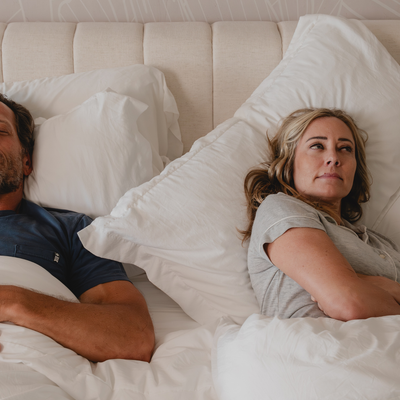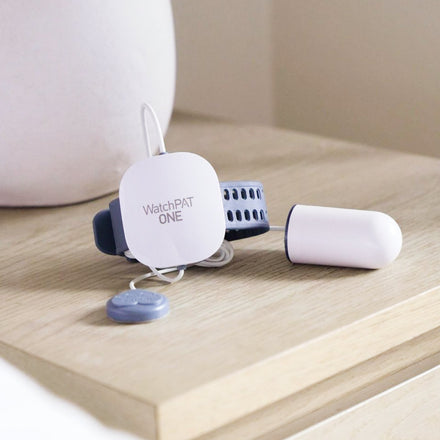Americans turn to Google 5 million times per month to research sleep-related problems. In 2019, the most common sleep-related search term was Sleep Apnea with 17 million searches. This doesn’t even take into account people searching for “snoring help”, “breathing while sleeping” or “tired all the time”, which are all highly correlated with sleep apnea (sorry Texas, we can’t help you with “Dream Meanings”). --Research according to a research article we loved by AmeriSleep.
The connection between sleep apnea and snoring is clear on google. “If I snore…” often auto-completes with “do I have sleep apnea?” We thought we’d help answer that question.
First, let’s define snoring: The noise caused by air passing through relaxed tissue in your throat while you sleep. Most people experience occasional snoring, but it’s less common as a chronic issue.
Natural question: If I’m a chronic snorer, does that mean I have sleep apnea?
While snoring and sleep apnea are tightly related, it doesn’t always mean that you have sleep apnea if you snore. However, it’s a good enough indicator that you should look into the other symptoms to determine if you are at risk for obstructive sleep apnea. While snoring is a nuisance, untreated sleep apnea will impact your health in negative ways.
So, how do we connect the dots between being a chronic snorer and determining if you should go forward with a home sleep test? There are a few factors that research has proven are highly correlated with sleep apnea.
According to the Mayo Clinic, if snoring is accompanied by any of the following symptoms, you are at risk of sleep apnea:
- Witnessed breathing pauses during sleep
- Excessive daytime sleepiness
- Difficulty concentrating
- Morning headaches
- Sore throat upon awakening
- Restless sleep
- Gasping or choking at night
- High blood pressure
- Chest pain at night
- Your snoring is so loud it's disrupting your partner's sleep
While snoring alone isn’t a major health risk, sleep apnea is. There is evidence that obstructive sleep apnea leads to a greater risk of high blood pressure, heart attack, stroke, congestive heart failure, atrial fibrillation, diabetes, certain cancers and even sudden death.
The best news, Lofta has streamlined the process of understanding OSA, being diagnosed, and beginning therapy. Lofta will support you every step of the way and help you on your path towards better sleep. You can start today with a sleep test from your own home.













































